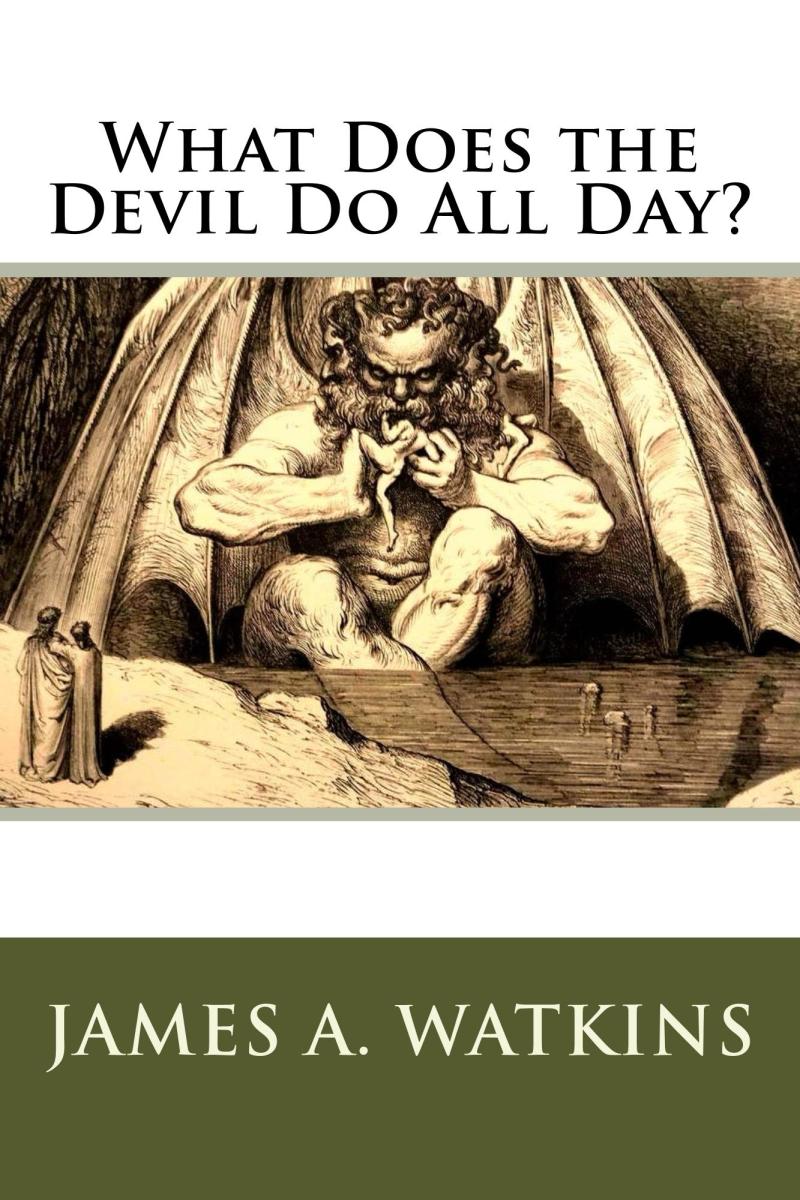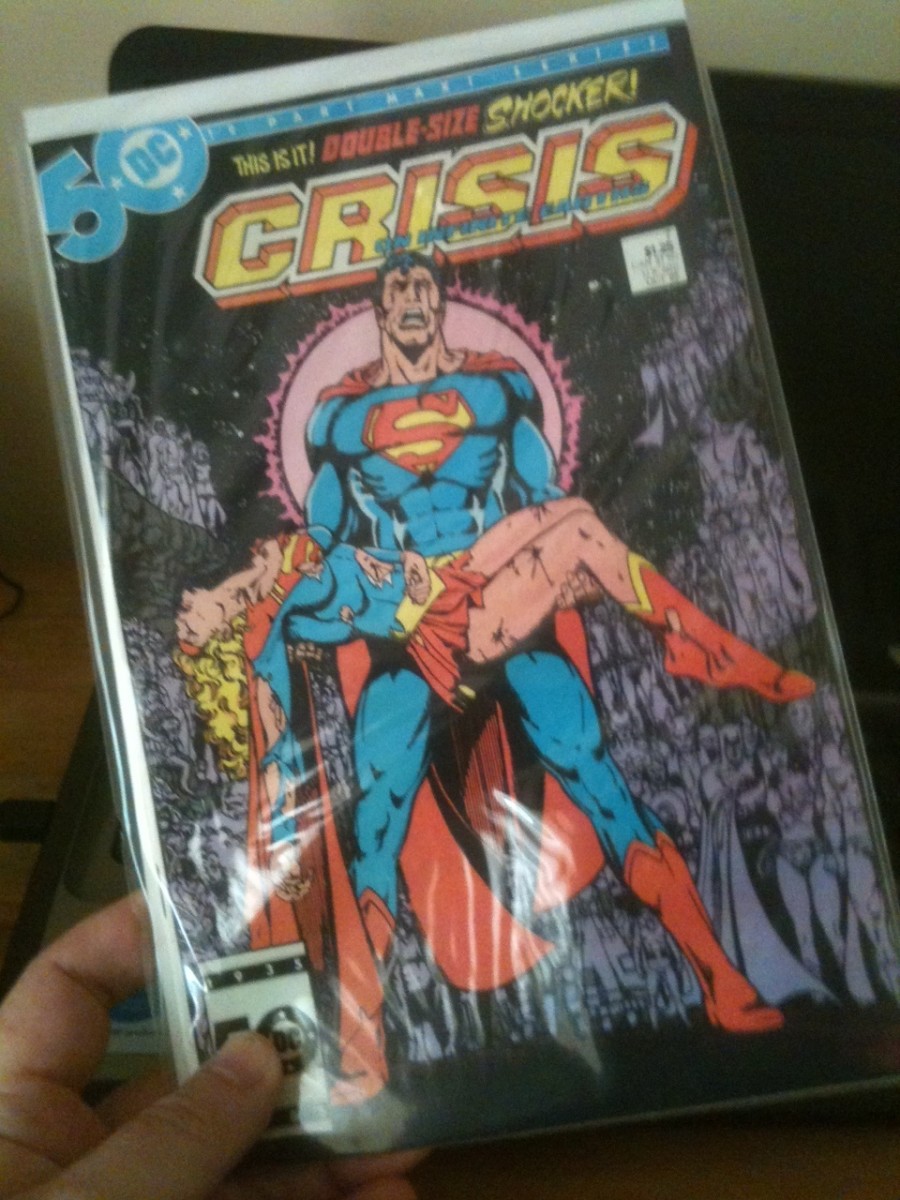Top 5 New Testament Characters Who Should've Got Their Own Novels


A really long time ago (and I’m talking waaaaay back there, like, even before Nintendo), a certain book was in the works, and that book has since been translated, interpreted, argued over, occasionally locked up, and sold on every bookshelf in the world. It’s a modest manuscript—just a thousand pages or so—called the Bible.
Believe it or not, some people take this book pretty seriously. Some people don’t. Others have never even read it. Some have read it just so they can point out everything wrong with it. Some people take every word literally.
Yeah, go figure, right? It's not like it makes any controversial claims or anything.
But when you get down to it, what you think of its reliability doesn’t change the fact that it has some pretty interesting characters. From a purely literary perspective, they are diverse, intriguing, and good food for thought.
And most of them are totally underdeveloped.
This is sort of tragic when you consider the unique things that happened to some of these people, and how many of them are barely given any screen time before being sucked helplessly back into the linguistic void that is the New Testament. I rebel against such injustice. Therefore, for your viewing pleasure, I’ve gathered some 5 of the most memorable characters that would probably be most grateful if you would pause to consider them from time to time.
1) The dude running around the garden in his birthday suit
This little incident is recorded in Mark 14:51-52. It is jotted down almost absentmindedly, as if the author were recording something boring, commonplace, and well-known to the majority of his readers:
“Now a young man followed him wearing nothing but a linen cloth about his body. They seized him, but he left the cloth behind and ran off naked.”
Whoa, Mark, baby. He did what now?
Unfortunately, who knows? We never hear from this kid again. I mean, damn. I don’t know about you, but this single sentence provokes a lot of questions for me. For instance, did this guy ever get his clothes back, or was he arrested for indecent exposure? Was he branded by his neighbors as a pervert and forced to live out the rest of his days in the outskirts of the village eating wild mushroom? Was he so scarred from the humiliation of this incident that he had to go to counseling? What sort of fellow was he, as a whole? What was his favorite snack? Did he prefer Coke to Pepsi? And was he having money problems? I mean, the fabric was obviously pretty cheap, to be torn off so easily. (An interesting question, actually. What exactly did this dude do for a living….?)
There are many theories about his identity or what this detail included in Mark (and no other Gospel) might signify. You can check out some of them here and here. But the bottom line is that a dude was running around the streets of ancient Jerusalem butt naked, and I would’ve liked to get to know him better.
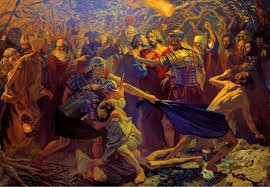

2) The swine owner who got massively screwed
This character is also found in Mark (chapter 5). Yes, Mark again. At this point, doesn’t the author seem like he’s starting to take a deliberate, vindictive delight in his own ambiguity? Anyhow, the story is relatively well-known: Jesus drives some demons into a herd of pigs, causing the entire herd to run off the cliff and into the ocean. At first this seems cool. Then we think of the owner of the swine.
Actually, we never really even hear him specifically mentioned; after Jesus performs this act, we just get a brief statement about the townspeople begging him to leave their district (can't imagine why). The owner of the herd, unlike the naked guy, isn't even given a line.
We know he had to be around, but Mark doesn't seem to take the fact that his entire source of income became fish chow in a matter of seconds very seriously. That herd must have been the swine herd's entire livelihood. I mean, can you imagine how his conversation with his wife went later that evening?
“Honey, you won’t believe what happened at work today. Our entire herd of sow was fondled by Satan and drowned in the ocean.’’
“You’re right. I don’t believe it.’’
“Some Jewish preacher talked to the devil and sent him into the pigs. Really.’’
“Have you been smoking weed again?”
“We’re screwed. We can’t even afford cable now. Pack you’re things. We’re moving back to Jamaica.’’

3) The nine lazy-ass lepers
Recorded in Luke 17:11-19, this story details how Jesus cures ten lepers and only one comes back to thank him. We’re supposed to admire the great faith of the one, but I’m actually more interested in the subsequent lives of the other nine.
Seriously, what did they do after that? Did they go on the start their own nonprofits and care for others in the same predicament? Did they actually find their own cure a bit overwhelming or frightening? It makes one wonder how many people asked for Jesus's help on a whim and how many of them were actually shocked when he listened.
Suddenly being cured of a deadly illness couldn't have been all unicorns and rainbow farts. It must have awoken an uncomfortable sense of obligation--or at least awe. But of course all this is just speculation. Thanks to the author's frustrating ambiguity, we'll never know.
Thanks a lot, Luke.
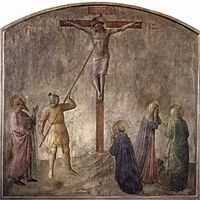
4) The centurion who got a blood bath
The famous centurion present at the Crucifixion is mentioned in varying degrees, as either one man or several, in every single Gospel (the only event on this list that is). He can be found in John 19: 34, Luke 23: 47, Mark 15: 39, and Matthew 28: 54.
In the more graphic versions of the story, he sticks a lance in Jesus’s side to make sure he’s dead and gets a face full of blood and water. And despite this no doubt psychologically scarring event, he’s passed over just like the others listed above, buried in obscurity shortly after one or two brief lines of dialogue.
Yep, that's right; one of the most interesting story lines in the whole New Testament is passed over like a smelly burp after a heavy meal. It's kind of unfair. I think it has a lot of possibilities, and I would’ve liked it if this guy had written something down for our viewing pleasure, or at least had someone write something down about him.
Of course, we know that the point of the Gospel narratives isn't to tell a story in the usual sense of the word. It's a theological exercise, with a dash of history, philosophy, and (in some cases) perhaps a certain amount of exaggeration that borders on the fictional; it isn't a novel and its authors weren't interested in going into the back stories of everyone who got a line of dialogue.
But...such a wasted opportunity, right? I feel like Dostoevsky or Tolstoy could've gone to existential town with this stuff.

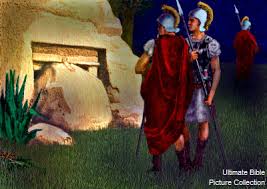
5) The stupid guards at the tomb
This episode is mentioned near the end of Matthew, and there is probably no one in the New Testament as screwed over as the guys guarding Jesus's grave. Their buffoonery is something to relish for a minute. Think about it: their only job was to stand in front of a rock. And they didn't do it right.
It takes a very special amount of suckage to fail so miserably at something so easy.
We hear that the elders were wiling to cover their screw up because they feared people would believe Jesus had risen. So they bribed the soldiers to spread the story that the disciples stole the body. But if you think about it, this wouldn't have really helped the situation of these guards. They were essentially spreading a story whose bare bones were: “His friends stole the body from under our noses while we were sleeping one off.”
Right, I’m sure that did great things for their career once Pilate got wind of it.
Wouldn't their firsthand account have been really interesting, not just to Biblical scholars, but to historians in general? Think of the angle they could bring to the alleged Resurrection story. But alas; they, too, are doomed to biblical obscurity.
Seriously. It's like the only thing these authors cared about was this Jesus guy. And we all know he didn't end up massively influencing the entire world or anything like that. So what gives?
Oh, well. In the meantime, we are left with nothing but mere shreds of a bigger picture, a patchwork quilt of a story that, while vibrant and colorful in what it does provide, is nevertheless destined to be forever incomplete.

